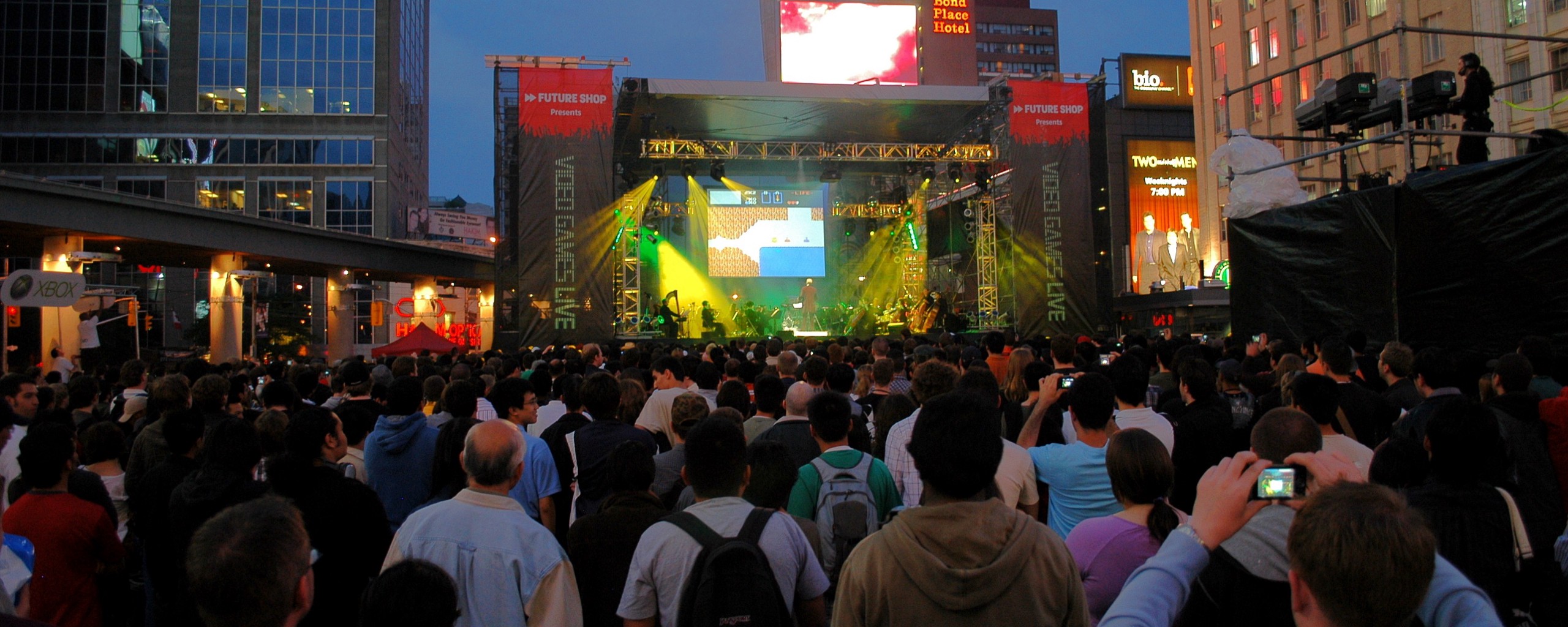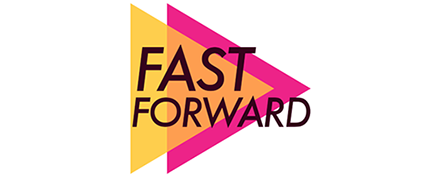

“The music from your childhood–you never forget it,” said Grant Kirkhope, the man who pretty much wrote the soundtrack to my youth. He isn’t a member of my favorite band, though he used to play the trumpet for Little Angels, a hard rock group that once opened for Bon Jovi and Van Halen. And while he’s a great admirer of the work of John Williams, he doesn’t write film scores. He is, in fact, a video game composer, and if you grew up during the golden age of Rare, the British video game developer that produced the likes of Donkey Kong 64, GoldenEye, Banjo-Kazooie, and Perfect Dark, there’s a good chance his work is as much a part of your teenage years as the music of Blur or Oasis.
The soundtracks crafted by composers like Kirkhope, David Wise, and Nobuo Uematsu belong to Gen-Y in the same way that great music by bands like the Beatles and the Stones belongs to our parents’ generation. Some of my earliest musical memories center around the bleeps and bloops produced by the BBC Micro, and I can still whistle the Zelda or Tetris themes at a moment’s notice. Other tracks are more deeply buried in the circuitry of my memory, but within a few seconds of hearing the opening bars I’m transported back to my childhood and the carefree joy of playing a brilliant platform game or RPG. In short, the Super Mario Bros. theme is my madeleine.
However, while their work has been played in millions of bedrooms around the world, the greatest video game composers haven’t always enjoyed the same profile or respect as their counterparts in the film industry, or the visual artists who designed iconic characters like Sonic, Mario, Donkey Kong, and Master Chief. Thankfully, that’s starting to change. Musicians who grew up playing video games increasingly incorporate their musical motifs into their work, and the BAFTAs, Ivor Novello Awards, and Grammys all recognize the outstanding achievements of video game composers. (Kirkhope, who left Rare in 2008, received a BAFTA nomination for his Viva Piñata score and won an International Film Music Critics Association Award for his work on Kingdoms of Amalur: Reckoning.)
Games are even blowing the cobwebs off classical music, with Video Games Live and other game-themed symphonic concerts packing music halls. It’s a far cry from the days when the legendary Nintendo composer, Koji Kondo, sat down to write the Super Mario Bros. soundtrack. The Nintendo Entertainment System could only play three notes simultaneously, yet Kondo still managed to conjure magic from the machine, digging deep into his creative toolbox to overcome its hardware limitations.
The reason his work endures, and continues to inspire video game composers, boils down to two things, said Kirkhope: the melody and chords. “A lot of the guys who started back then–they really know how to write a good tune,” he told me in his quick-fire, North Yorkshire accent. “You had to write something that people could listen to over and over again without it becoming annoying. And the memory requirements were so tiny–you just squeezed as much as you could into the amount of space that you had.”
Nintendo’s approach to video game music was a big influence on Kirkhope’s development as a composer. “At that time Rare was partly owned by Nintendo, so they were the people we looked toward. Zelda and Mario and all those tunes are just fantastic, and they still stand up today. You can take the chords and the melody and dress it up how you like, make it a metal song or a pop song–it doesn’t matter,” he said.
For proof of how many ways you can adorn the music of the 8- and 16-bit era, one need only type the names of some famous games into YouTube’s search bar. Among the millions of results, you’ll find a clip of The Triforce Quartet performing the Super Mario Bros. theme on string instruments, while Jonas Lefvert has refashioned the classic Zelda theme as a soulful Spanish guitar piece. Further fan arrangements of classic video game tracks can be found on the OverClocked ReMix website, which is home to a thriving community of video game music enthusiasts. One of my favorite pieces is a reworking of a Kirkhope’s “Mad Monster Mansion” track from the much-loved Banjo-Kazooie soundtrack, which the remixers felt would “lend itself perfectly to frenetic, Pendulum-inspired dnb/rock, with the usual necessary orchestral work.” Now there’s something you don’t hear every day.
The music snobbery that once decreed it was OK to like film scores but not video game soundtracks has been largely blown away by young people’s pick’n’ mix approach to culture. Today’s teenagers, said Kirkhope, have got Metallica next to Kuji Kondo on their iPhones, and for them there’s no differentiation. “They just think, “‘I like that music, and I don’t care if it’s 8-bit.'”
They might also have bands like Crystal Castles somewhere in their playlists, whose music was once described by Drowned in Sound as “ferocious, asphyxiating sheets of warped two-dimensional Game Boy glitches and bruising drum bombast.” Acts such as Beck, the Killers, and No Doubt have also borrowed from video games’ aural aesthetics, while countless hip-hop, house, and electro artists seem to delight in sampling their favorites as well.
Going back a little further in time, you can hear echoes of the arcade in the music of Kraftwerk and other Krautrock bands. (The album 8-Bit Operators: The Music of Kraftwerk, which features covers of Kraftwerk tracks by prominent chiptunes artists, was released by Astralwerks/EMI Records in 2007. Kraftwerk founding member Ralf Hütter personally selected the tracks.) But the first group to fuse video game sounds and popular music was the Yellow Magic Orchestra, which sampled sounds from several classic arcade games in its early albums–including Space Invaders in the 1978 hit “Computer Game.”
Video game soundtracks now regularly enter the album charts in countries like the United Kingdom. Some of those sales can be attributed to the recent trend for releasing video game soundtracks on vinyl (although it’s more a revival than a trend: LPs of video game music were popular in Japan back in the 1980s, with the rarest releases fetching a small fortune today). Soundtracks for Grand Theft Auto V, Journey, Battletoads, Streets of Rage II, and Banjo-Kazooie have all been transferred to the audiophiles format of choice and released in sumptuous packaging. Kirkhope puts the appeal of these releases down to a desire to own something physical in an age where downloads are generally the norm: “It’s a nice thing to have. It feels substantial–it’s not a little CD, it’s not a little game. It’s a big thing with a big sleeve.”
Many indie developers have also taken to releasing the soundtracks to their games on Bandcamp, generating extra revenue and allowing fans to enjoy the music of their favorite titles long after they’ve completed them. In fact, some would say the indie scene is now home to the most innovative and enjoyable video game music. The incredible soundtrack to Hotline Miami, a top-down shooter inspired by the film Drive, undoubtedly played a major part in its strong reviews and sales, for example. While the likes of Fez, Super Meat Boy, Superbrothers: Sword & Socery EP, and many other indie titles have also been acclaimed as much for their music as their visual style and game play.
At the other end of the spectrum, big budget titles are increasingly aping the music of Hollywood blockbusters. “You’ve got access to a full, live orchestra now,” said Kirkhope, “with real people playing instruments rather than samples.” Michael Giacchino, who composed the soundtrack for the game Medal of Honor–and later made the jump to film, scoring hit movies such as The Incredibles and Star Trek–is one of the new breed of composers who flit between the video game industry and the world of film and television. But each medium still requires a distinct approach: Games are not a linear experience; you can never be entirely sure what the player will be doing at any given moment, which makes it almost impossible to create a score that’s perfectly in-sync with his or her on-screen actions.
That’s not to say a degree of responsiveness isn’t possible. The Monkey Island games pioneered the iMuse system, which was capable of subtly changing a game’s music based on a number of player actions. Kirkhope employed a similar technique on Banjo-Kazooie, as do many modern games today. The technique was used to brilliant effect in Red Dead Redemption–as you mosey over the border of Mexico on your trusty steed, the ambient noises of the Old West fade away and an acoustic song by Jose Gonzalez swells up to replace them. It’s without doubt one of the most memorable moments I’ve had while playing a video game.
The orchestral soundtracks of popular modern games are regularly performed alongside symphonic reworkings of classic tracks from the 8- and 16-bit era at Video Games Live concerts. Over 350 performances have taken place in more than 30 countries since the debut Video Games Live performance at the Hollywood Bowl in 2005, which was attended by around 11,000 people. According to the organizers, each performance aims to provide: “The power and emotion of a symphony orchestra mixed with the excitement and energy of a rock concert, and the technology and interactivity of a video game–all completely synchronized to amazing, cutting-edge video screen visuals; state-of-the-art lighting; and special on-stage interactive segments with the audience.”
It’s a far cry from your typical symphonic concert, but it’s proving to be a godsend for orchestras and concert halls, which often struggle to sell tickets to performances of traditional classical works. “Parents are getting dragged to symphony concerts because the kids want to hear their favorite video game music, and that’s incredible,” said Kirkhope, who has three tracks in the Classic FM Hall of Fame. He wonders how long it will be before the BBC Proms stages a video game music night, which he thinks would be a “blockbuster” event.
As for Kirkhope, he’s about to start work on the soundtrack to Yooka-Layee, the spiritual successor to Banjo-Kazooie. “This is the first time the original people who made Banjo-Kazooie have actually been available to work together,” he said, clearly excited to be teaming up with his old colleagues again. Yooka-Laylee smashed its Kickstarter funding target in 40 minutes, and went on to receive over £2 million [$2.98 million] in pledges–which shows how much affection there is for the work of Kirkhope and his former Rare colleagues. No doubt the music he creates for the game will form part of the soundtrack to many more people’s youth, along with that of countless other video game composers–past, present, and future.


How We Get To Next was a magazine that explored the future of science, technology, and culture from 2014 to 2019. This article is part of our Fast Forward section, which examines the relationship between music and innovation. Click the logo to read more.
